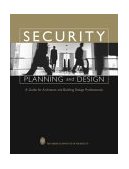All Articles
Accident Investigation & Reconstruction
Gems & Jewelry
Accounting
Insurance
Addiction Issues & Substance Abuse
Intellectual Property
Alternative Dispute Resolution (ADR)
International Trade
Appraisal & Valuation
Investigation & Surveillance
Aquatics Safety
Jails - Prisons - Correctional Facilities
Archaeology - Archeology
Life Expectancy - Life Care Planning
Arms - Guns - Weapons
Manufacturing
Attorney Fees
Mediation
Automotive - Vehicular
Medicine
Business Consulting
Metallurgy
Child Welfare
Mining
Child Witch Phenomenon
Nonprofit Organizations
Computers
Obstetrics - Gynecology (OBGYN)
Corrosion
Pain Management
Cosmetology: Hair / Makeup
Plants & Trees
Crime Scene Investigation
Police Practices & Procedures
Criminology
Politics
Dental - Dentistry
Pools and Spas (Recreational)
Discovery & Electronic Discovery
Product Liability
Domestic Violence
Radiology
Elevators - Escalator - Automatic Doors
Real Estate
Ethics / Ethical Duties
Slip, Trip & Fall
Expert Witnessing
Supply Chain Management
Foreign Affairs - Geopolitics
Terrorism - Homeland Security
More...

COMMUNICATION-PAGE ARTICLES MAIN PAGE
. Contact Us if you are interested in having your work published on our website and linked to your Profile(s).
All Articles
Addiction Issues & Substance Abuse
Human Factors
Aquatics Safety
HVAC - Heating, Ventilation, Air Conditioning
Arms - Guns - Weapons
Hydrology
Artificial Intelligence (AI) / Machine Learning (ML)
Injury
Branding - Brand Management
Insurance Coverage Analysis
Business Management
Land Use
Computers
Law Enforcement
Construction
Linguistics
Corrosion
Manufacturing
Cosmetology: Hair / Makeup
Market Research
Counseling
Metallurgy
Crime Scene Investigation
Patents
Digital Forensics
Pharmacy & Pharmacology
Education & Schools
Police Practices & Procedures
Enterprise Resource Planning (ERP)
Professional Skills
Environment
Psychiatry
Expert Witnessing
Radiology
Finance
Risk Management
Food & Beverage
Search Engine Optimization (SEO)
Foot / Ankle Surgery
Securities
Foreign Affairs - Geopolitics
Slip, Trip & Fall
Forensic Psychiatry
Spirituality
Healthcare
Supply Chain Management
Healthcare Facilities - Hospitals
Terrorism - Homeland Security
Hotels & Hospitality
Underwriting
More...
Featured Articles
There are no active articles here at this time. Please use the search bar, try another category, or contact us if you would like to contribute an article.
This Article is unavailable. Contact Us
Search articles by title, description, author etc.
Sort Featured Articles
Featured resources
Security Planning and Design : A...
by The American Institute of Architects
Residential Building & Remodeling
by Paul Johnson
When Disaster Strikes: A...
by Matthew Stein, PE
Follow us










